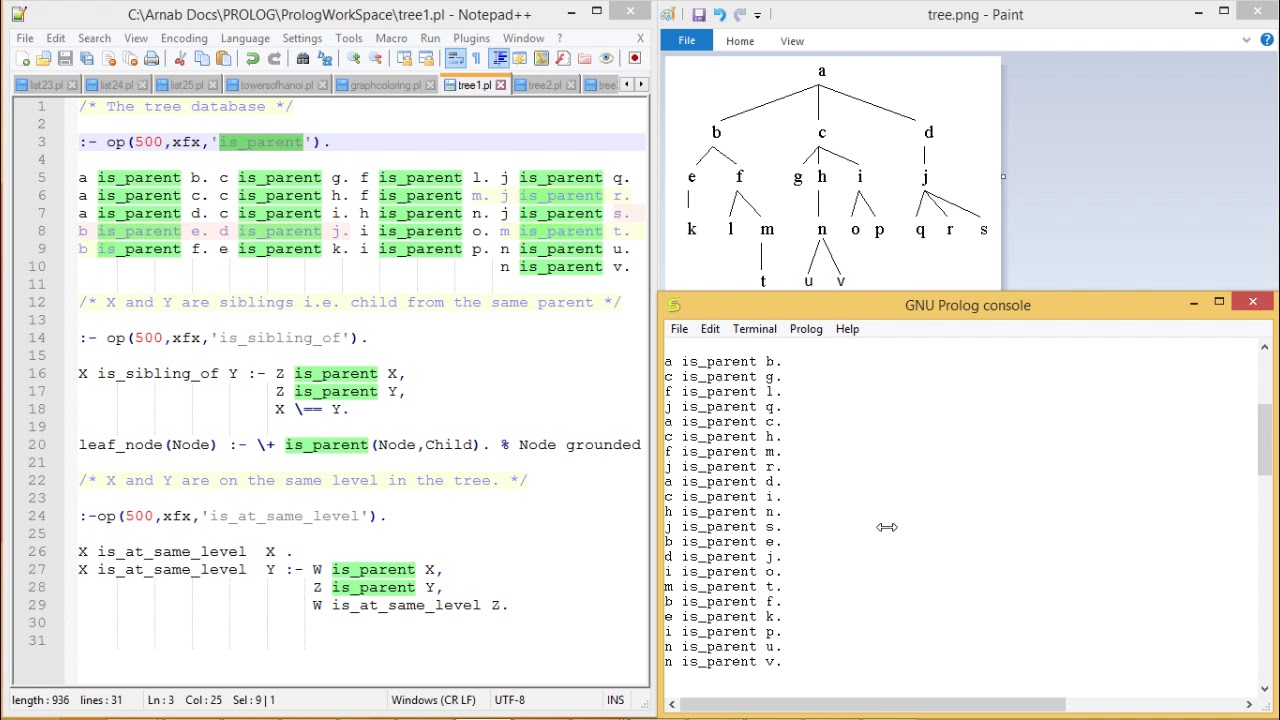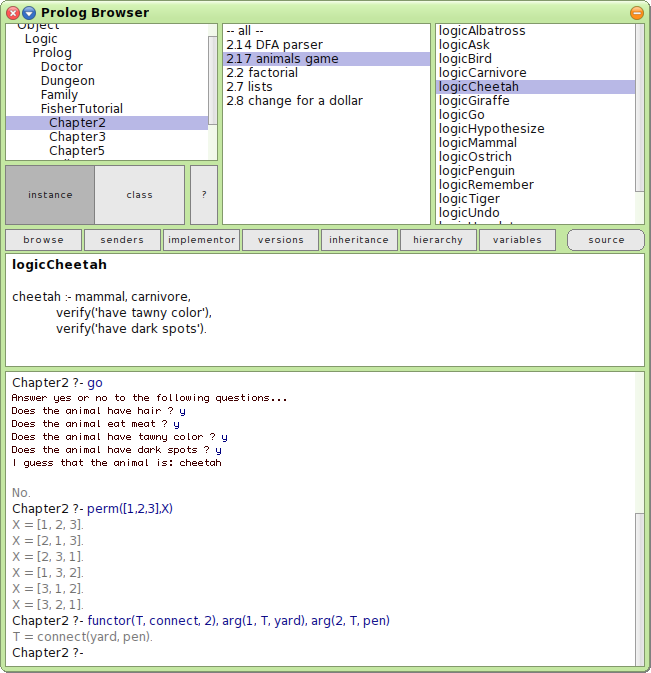
- #PROLOG ADVENTURE GAME SOURCE CODE GENERATOR#
- #PROLOG ADVENTURE GAME SOURCE CODE CODE#
- #PROLOG ADVENTURE GAME SOURCE CODE FREE#
* and be sure to MAKE sure somewhere to add a * parserArea is the JTextBox used to grab input outputArea should be a non-editable JTextArea to display our results Public static String parsed = new String It strips out unwanted characters except leaves A-Z and 0-9 as well as the question mark (for a "help" command shortcut): // put these as global variables just after your main class definition If you have the patience to do it you can easily write up a parser in Java using the Tokenizer class.Įxample I wrote using a global JTextArea and a global String array. The problem with Inform7 for programmers is as famous as "guess the verb" is for players of text adventures in that if you don't write your sentences VERY carefully you're going to break the game.
#PROLOG ADVENTURE GAME SOURCE CODE CODE#
If you're a programmer Tads3 will be tons easier to code things faster than Inform7, which I've used before as well. It's more for computer programmers though but a very powerful language. I used the Tads3 (engine for some of the text adventures I wrote. This could change the context and thus the same sentence could no longer be semantically correct (for instance there could be no man to eat)

If also the semantics is correct then you can, for instance, change the world according to it.
#PROLOG ADVENTURE GAME SOURCE CODE FREE#
The type of grammar you need is a Context Free Grammar and there are tools which automatically generate a parser starting from a synthetic description of the grammar such as ANTLR (The parser only checks whether a sentence is correct or not and produce an Abstract Syntax Tree (AST) of the sentence which is a navigable representation of the sentence where each word has the role you specified in the grammar.īy navigating the AST you have to add the code that assess what is the semantics each word takes when playing that role with respect to the other words in the sentence and verify whether the semantics is correct.įor instance the sentence 'The stone eats the man' is syntactically correct but not necessarily semantically correct (unless in your world stones, maybe magic stones, can eat men). To this end you have to define a grammar for your language (vocabulary and syntax). You need to define a domain specific language that is all the sentences which are correct in your game. Inform 7 is a frontend to Inform 6, a more traditional programming environment, with all source available.Notably the base world model is available, but the natural language parser is not. Some, but not all, of the webs for Inform 7 are available.It is written in inweb, a custom-designed literate language.The Inform 7 parser is closely integrated with the Inform 7 IDE, and the entire source code is not available for study yet: Otherwise say "The place is blissfully odorless." If a scented thing can be touched by the player, say "You smell. The block smelling rule is not listed in any rulebook. The scent of a thing is usually "nothing". Inform 7 source reads "like English," in the same way that Inform-based games let you "write English." For example, from Emily Short's Bronze:Ī thing has some text called scent. The state of the art for making text adventures today is using Inform 7.

"take the green key" is grammatically correct and syntactically correct, but you still need to check that the green key is present.Įventually your program ends up with a validated command with all the various parts checked then it's just a case of calling the right function with the arguments to perform the action. The first way can help you to give out better error messages to the player, but you always need to do the second to some degree anyway, as you always need to check context - eg.

have different types of verbs only valid with certain types of noun) or check the nouns against the verb afterwards. You can solve this in 2 ways make the grammar more formal (eg. Once parsed, you can work out if the sentence makes sense - "go north" may make sense, but "get the green north" does not. (Look up 'recursive descent parsers', which use one function for each line of the grammar.)
#PROLOG ADVENTURE GAME SOURCE CODE GENERATOR#
Anyway, you can use a parser generator to generate code to parse this grammar, or write your own fairly easily if your language has decent string handling. The above is a variant on Backus-Naur form, the standard way of representing grammars. Noun = "north" | "south" | "east" | "west" | "house" | "dog" A grammar might be something simple like this: sentence = verb object Typically you can start out with a simple grammar and vocabulary, then write a parser for it. However, bear in mind that formal methods are designed to try and understand real world texts, whereas you only usually need something that works for a limited subset of your natural language. The term you want is 'natural language processing', or NLP.


 0 kommentar(er)
0 kommentar(er)
